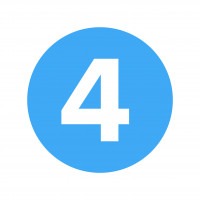Systemwide Membership Approach
What's Changing & What Are The Benefits?
The tennis family is large and diverse. To provide an environment that is safe for participants, we need policies like the Participant Protection Policy to apply as widely as possible. So, we are using the membership provisions of the new Act to bring more participants under the umbrella of important policies.
For existing club members, this change means that they will be bound by not only club policies, but also those of organisations such as Local Tennis Partners, Regional Tennis Organisations and Tennis New Zealand. This will happen through a simple change to Terms and Conditions of club membership which includes a new non-voting class of individual membership across all the tennis organisations.
For casual participants, when they enter a business house league, enter a tournament, use Book a Court or another platform capturing their details, they will also agree to this form of non-voting individual membership which binds them to policies. For clubs, this means a new class of non-voting membership will be introduced for casual participants.
Many other sports use systemwide membership models, for example Golf and Gymnastics.

This Approach Will Create The Following Benefits
- Safety - Individuals at your club are protected and bound by all the rules, policies and procedures of the system – including registration of coaches, and a suitable complaints and disciplinary system. This model also allows the new Regional Tennis Organisations and Local Tennis Partners to have further policies that apply throughout their geographies.
- Involvement – As a club, RTO, or LTP, you will know who is participating in tennis and can provide benefits and information/education to suit their needs. In turn they will become more involved and engaged.
- Connection – From the one local live database, your club, your RTO, and the national body will be able to view aggregated information on participation. You can then communicate and connect to these participants and have reliable data to assess trends and shape their priorities.
"This approach creates a safety net for our sport as all participants are bound by the code of conduct from the moment they step on the court. Club committees can have peace of mind about that, and know they can escalate any issues and get help if needed"
Tash Bartlett, Chair, Tennis Northern
Tennis NZ respects your data privacy and adheres to both its own Data privacy policy and that of the NZ Privacy Act 2020.
The below link is to a diagram that shows the way in which your data and membership flow through the system.
Club members' primary relationship remains with you, their club.
When individuals sign up to your club, they will notice the addition of a request to read and agree to the terms and conditions of membership for your RTO/LTP AND Tennis New Zealand.
By agreeing to these, individuals will become a paid, voting member of your club and a non voting ‘associate’ member of your RTO/LTP AND Tennis New Zealand – affording you the safety and connection of such membership. That’s it!
For casual participants, they will be tagged on the national database as non-voting individual members of your club.
The Tennis NZ system respects the privacy of your data (you can read the Tennis NZ Privacy Act here)
The data connection between an individual and their club (and associated data transfer) is bound and covered by the relevant third party Membership Management System provider's Data Privacy Policy (ClubSpark, PaytoPlay etc). TNZ are not part of this relationship. The protection and T’s and C’s for this data will be dependent on which provider the club has chosen
TNZ offer the ClubSpark platform and system free of charge but are working with a number of the leading providers around this connection and privacy. Part of this agreement between club and provider is allowing the National Body (and relevant tennis parties) access to the data gathered by the provider for a select set of uses to benefit the sport.
The Tennis NZ regulations outline the minimum data points we require from the providers - this includes name/D.O.B/ethnicity(optional)/email and membership start and end date. There may be other data gathered by the club that is not provided to Tennis NZ.
All individuals have the ability to ‘opt out’ of communications via the Clubs MMS provider.
As we look to grow the sport, we want to understand who participates and how, as well as keeping everyone safe through mechanisms like the Code of Conduct.
What this means for clubs is that, initially, anyone who digitally connects (for example, books a court, enters a tournament, or signs up to the club) would become a non-voting member.
For those who are 'trying out' or attending informal open days/coaching sessions we would not expect clubs to require them to join the club as a paid member in the first instance, however, continue to use reasonable endeavours to join them into the system where appropriate - as clubs do currently.
For example, if you have an online booking system for casuals you may suggest that people arriving at the club use it so their details are recorded. There is no need to manually record casual visitors.
More guidance on non members can be found here
Anyone who connects to the system would be put into the club (and national) database as a non-voting 'member' of your club (as the Act requires).
This is the legal terminology of 'member' and is used as the Act requires the constitution to state how a person becomes (and ceases) to be a 'member'. However, this is not the same as a paid up 'Club member' which we all understand to be someone who has paid a subscription or fee for access to the courts for a defined period (usually 12 months).
This change does not entitle casual participants to any benefits or rights other than what they have paid for, unless expressly written into your constitution.
The systemwide membership approach is designed to ensure all those who participate in our sport (members + casuals, parents, officials, coaches etc) are connected and protected by national policies around safety. This system also allows clubs to know that they too are covered by these policies which create a safer, more connected environment for all.
Pragmatically, this system will only connect those who connect into the sport - so anyone who joins a club, or a casual who books a court, or enters a business house league etc. Where someone comes along to try the club out, or plays with a member but doesn't book the court - the system won’t connect them.
In terms of parents, there are 2 reasons for that provision: (i) there are issues with enforceability of contracts with juniors (ii) we (and we are sure clubs) want parents to comply with the same behaviours and standards as all other participants.
How does this benefit me?
As a Club Participant
"I know I am playing at a club environment that is safer because it is covered by robust policies and practices that apply to everyone"










































